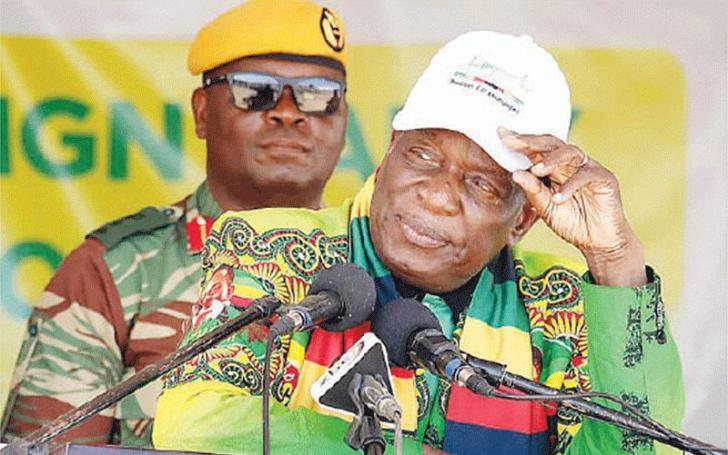News / National
Zanu-PF resistance to Mnangagwa overstay grows
11 Sep 2024 at 10:57hrs |
0 Views

President Emmerson Mnangagwa's efforts to extend his presidency beyond the 2028 constitutional limit are facing increasing resistance from both within his party, Zanu-PF, and external groups. As moves to amend the constitution to allow for an extended term gather momentum, significant opposition has emerged.
War veterans, civil society organizations, and religious groups are leading the charge against Mnangagwa's third-term ambitions. War veterans, in particular, have voiced strong disapproval, urging Mnangagwa to respect the constitution and step down at the end of his second term in 2028. Western Ezrah, a prominent war veteran, criticized those advocating for a third term as "mad" and accused them of trying to undermine the constitution that was established in 2013. Similarly, Retired Major General Gibson Mashingaidze, another war veteran, emphasized the need for Mnangagwa to honor his commitment to step down, aligning with his stated position as a constitutionalist.
The push for a third term originated in Masvingo province earlier this year and has since spread to other provinces. Proponents argue that extending Mnangagwa's presidency is necessary for achieving his 2030 vision. However, this stance has faced backlash reminiscent of previous political struggles. During the 2016 Zanu-PF succession battles, war veterans opposed then-President Robert Mugabe's attempts to extend his rule, asserting their influence as key figures within the party.
Civil society organizations have also condemned the call for a third term, describing it as both "unfortunate and illegal." According to Zimbabwe's constitution, a president is limited to two five-year terms, making Mnangagwa's current term his final one. Despite Mnangagwa's public statements rejecting any intention to seek a third term, concerns persist that Zanu-PF may attempt to amend the constitution to facilitate an extension.
The Crisis in Zimbabwe Coalition, marking the 11th anniversary of the constitution, criticized the proposal to extend Mnangagwa's presidency, arguing that it undermines democratic principles and the progress made since the constitution's adoption. Similarly, the Zimbabwe Council of Churches, led by Reverend Wilfred Dimingo, has strongly opposed any changes to the term limits, emphasizing the importance of upholding the constitution and democratic values.
Opposition parties have also voiced their opposition to the idea of a third term, adding to the mounting pressure against Mnangagwa's bid for an extended presidency.
War veterans, civil society organizations, and religious groups are leading the charge against Mnangagwa's third-term ambitions. War veterans, in particular, have voiced strong disapproval, urging Mnangagwa to respect the constitution and step down at the end of his second term in 2028. Western Ezrah, a prominent war veteran, criticized those advocating for a third term as "mad" and accused them of trying to undermine the constitution that was established in 2013. Similarly, Retired Major General Gibson Mashingaidze, another war veteran, emphasized the need for Mnangagwa to honor his commitment to step down, aligning with his stated position as a constitutionalist.
The push for a third term originated in Masvingo province earlier this year and has since spread to other provinces. Proponents argue that extending Mnangagwa's presidency is necessary for achieving his 2030 vision. However, this stance has faced backlash reminiscent of previous political struggles. During the 2016 Zanu-PF succession battles, war veterans opposed then-President Robert Mugabe's attempts to extend his rule, asserting their influence as key figures within the party.
The Crisis in Zimbabwe Coalition, marking the 11th anniversary of the constitution, criticized the proposal to extend Mnangagwa's presidency, arguing that it undermines democratic principles and the progress made since the constitution's adoption. Similarly, the Zimbabwe Council of Churches, led by Reverend Wilfred Dimingo, has strongly opposed any changes to the term limits, emphasizing the importance of upholding the constitution and democratic values.
Opposition parties have also voiced their opposition to the idea of a third term, adding to the mounting pressure against Mnangagwa's bid for an extended presidency.
Source - newshawks
Join the discussion
Loading comments…


























